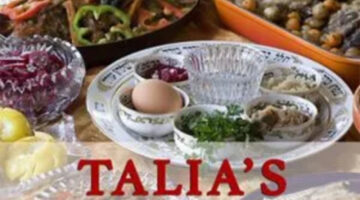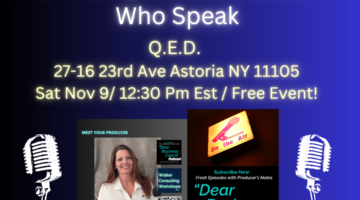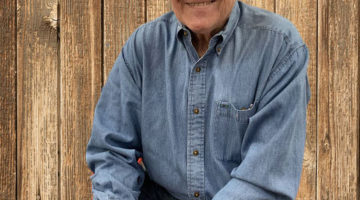The Jewish Center in Manhattan held a somber and beautiful memorial service to commemorate Yom Hazikaron (Day of remembrance) sponsored by Manhattan Jewish Experience. This annual memorial pays respect to the fallen soldiers of Israel.
One could find very many tears in that room, recalling the great sacrifice that the people of Israel paid in obtaining and maintaining their Independence.
However, just moments later, the room transformed into a “Bar-Mitzvah” type atmosphere (the fun kind) celebrating Yom Haatzmaut (Day of Independence) with a party like it was 1948…er 99. (Youtube A Capella stars, Six13 brought their game)
To an outsider, it would seem the Jewish community of the UWS had severe schizophrenia.
One moment serious and solemn, the next joyous and celebratory.
The question begs how can we as a people, as humans, sincerely go from one extreme to another in the same evening? Are we cold? Are we innately contradictory?
The duality of man’s emotions is something that many have philosophized over. Sometimes highlighting what seems to be man’s innate contradiction, and other times Man’s supreme strength.
Rabbi Elya Meir Bloch Ztl (Rosh Hayeshiva of Telshe Cleveland) explained this phenomenon: The Gemora (Megillah 10b) says that when the Egyptians were drowning in the Sea of Reeds, the Heavenly angels wanted to sing a song of praise, but Hashem told them, “My creations are drowning in the sea, and you are singing about it?!” The obvious difficulty in understanding this Gemora is how were the Jewish people permitted to sing the Shiras HaYam – Song at the Sea – and why didn’t this same reasoning apply to them? Rabbi Bloch explains that although angels are on a high spiritual level, they can only have one singular mission. Man may not be on the same spiritual level, but man has the power of duality, and can handle two contradictory concepts at the same time. As a result, angels aren’t able to sing due to the fact that the Egyptians were suffering, so they can’t sing about the good. Humans, on the other hand, are able to balance that contradiction within themselves. Both sad over the punishment of the Egyptians and joyous over their own salvation at the same time. Rav Elya Meir Bloch Ztl notes this concept is manifested in other Halacha, Jewish Law, itself. The law states that if a relative dies and leaves us a large inheritance, we recite two blessings at the same time: Boruch Dayan HaEmes (Blessed is the True Judge) and also Boruch HaTov V’HaMeitiv (Blessed is the One Who is Good and does good). The law imitates the human condition.
This is the concept of man’s emotional duality, and it beautifully shined through at the Jewish Center event.
Event-goers themselves seemed to naturally grasp the power of this night and its emotional seesaw.
Charles Fishman a festive 30 something from Brooklyn, said the transition from Yom Hazikaraon sobriety to Yom Haatzmaut celebration enhanced the entire emotion of the event. Noting sarcastically he only wished the blue and white frosted cupcakes could’ve come out a bit sooner.
Marni Schamroth an AMDA musical theater student from Beit Shemesh Israel, said she reveled in the evening, but was “homesick” craving more of the mass crowd-celebration found in the holy land. “I miss the way things change in Israel into a huge national dance celebration”, she noted with a glowing smile on her face.
Duality comes with responsibility. Responsibility in mourning loss and sharing in the sorrow of our people. But equal responsibility in celebrating in the good fortune, the true mazal, of our nation as well.
One emotional responsibility does not give us the right to forgo the other.
This is why it is so critical for more US Jews to embrace both sides of the evening. Zikaraon and Atzmaut. Celebrating only one side misses the beautiful duality intrinsic in being human and fully appreciating the story of our Jewish nation.









